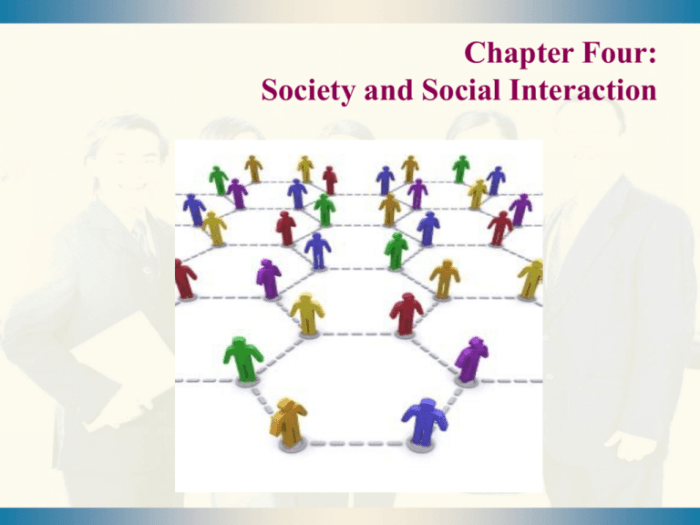The real world an introduction to sociology 7th edition – The Real World: An Introduction to Sociology, 7th Edition, delves into the captivating study of human societies and their intricate dynamics. This comprehensive text invites readers to explore the fundamental concepts and theories that underpin sociology, equipping them with a deeper understanding of the social world we inhabit.
From the foundational principles of sociology to the examination of culture, socialization, and social institutions, this book provides a thorough analysis of the forces that shape our lives. It delves into the complexities of social inequality, social change, and the evolving role of sociology in the 21st century.
1. Introduction to Sociology: The Real World An Introduction To Sociology 7th Edition
Sociology is the scientific study of society and human behavior. It examines how individuals, groups, and institutions interact and shape our social world. Sociology has a broad scope, encompassing topics such as culture, social inequality, social change, and the functioning of social institutions.
Different Perspectives and Theoretical Approaches in Sociology, The real world an introduction to sociology 7th edition
Sociologists use various perspectives and theoretical approaches to understand social phenomena. Some of the main perspectives include:
- Functionalism: Views society as a complex system where each part contributes to the overall functioning of the whole.
- Conflict theory: Focuses on the struggle between different groups in society for power and resources.
- Symbolic interactionism: Emphasizes the role of symbols and communication in shaping human behavior and social interaction.
Examples of How Sociology Can Be Used to Understand the Real World
- Understanding the causes and consequences of social inequality
- Analyzing the impact of social media on human relationships
- Examining the role of culture in shaping political and economic systems
2. Culture and Society

Culture refers to the shared beliefs, values, norms, and practices of a society. It shapes our behavior, worldview, and sense of identity.
Key Elements of Culture
- Symbols: Objects, gestures, or words that represent abstract ideas or meanings.
- Language: A system of communication that allows people to share thoughts and ideas.
- Norms: Rules that guide behavior and maintain social order.
- Values: Shared beliefs about what is good, right, and desirable.
Role of Culture in Shaping Human Behavior
Culture plays a crucial role in shaping human behavior by:
- Providing a set of expectations and guidelines for behavior
- Influencing our values, beliefs, and attitudes
- Creating a sense of belonging and identity
3. Socialization and the Life Course
Socialization is the process by which individuals learn the norms, values, and behaviors of their society. It occurs throughout the life course and involves various agents of socialization.
Agents of Socialization
- Family: The primary agent of socialization, where children learn basic values and norms.
- Peers: Friends and classmates who influence our behavior and values, especially during adolescence.
- School: Provides formal education and socialization into the broader society.
- Media: Plays a significant role in shaping our perceptions and beliefs about the world.
Impact of Socialization on the Life Course
Socialization shapes our experiences throughout the life course by:
- Influencing our educational and career choices
- Shaping our relationships and social networks
- Providing us with a sense of identity and purpose
4. Social Institutions
Social institutions are organized structures that perform essential functions in society. They provide a framework for social interaction and shape our behavior.
Types of Social Institutions
- Family: Provides a basic unit for socialization and economic support.
- Education: Transmits knowledge and skills to prepare individuals for adult life.
- Religion: Provides a system of beliefs and rituals that give meaning and purpose to life.
- Economy: Produces and distributes goods and services to meet societal needs.
Functions of Social Institutions
- Provide stability and order to society
- Meet basic human needs
- Transmit culture and values across generations
5. Social Inequality
Social inequality refers to the unequal distribution of resources, opportunities, and power among different groups in society.
Forms of Social Inequality
- Economic inequality: Differences in income, wealth, and access to resources.
- Social inequality: Differences in status, prestige, and access to opportunities.
- Political inequality: Differences in power and influence over decision-making.
Causes and Consequences of Social Inequality
Social inequality can be caused by various factors, such as:
- Discrimination
- Differential access to education and healthcare
- Inherited wealth and privilege
Social inequality has significant consequences for individuals and societies, including:
- Limited opportunities and life chances for disadvantaged groups
- Social unrest and conflict
- Reduced social mobility
Expert Answers
What is the main focus of The Real World: An Introduction to Sociology, 7th Edition?
The text provides a comprehensive overview of the field of sociology, exploring the fundamental concepts, theories, and research methods used to understand human societies and their interactions.
How does the book approach the study of culture?
The text examines culture as a central aspect of human societies, exploring its role in shaping beliefs, values, norms, and behaviors. It analyzes the diversity of cultures around the world and their influence on individuals and groups.
What is the significance of social institutions in the book’s analysis?
The book emphasizes the importance of social institutions, such as family, education, and religion, in shaping our lives. It examines their functions, structures, and the ways in which they influence our social experiences and behaviors.